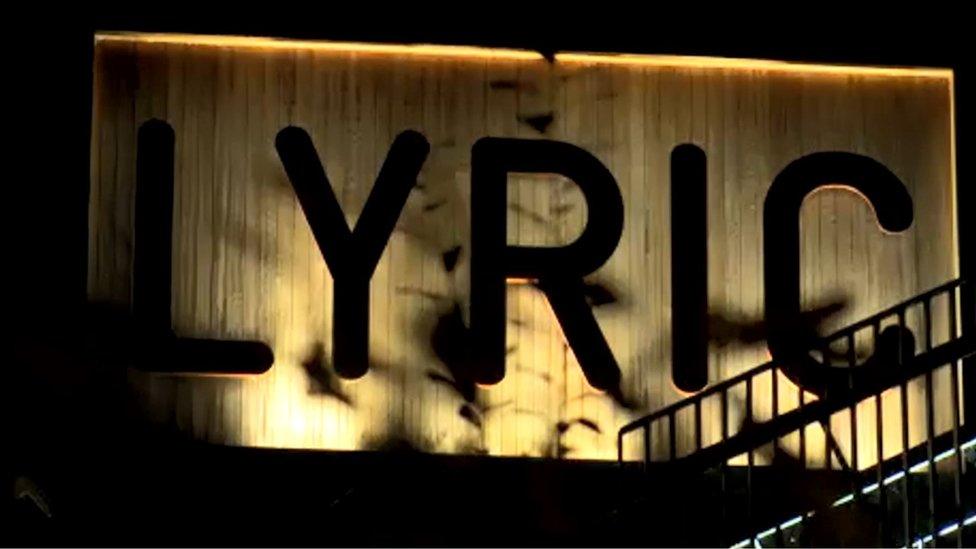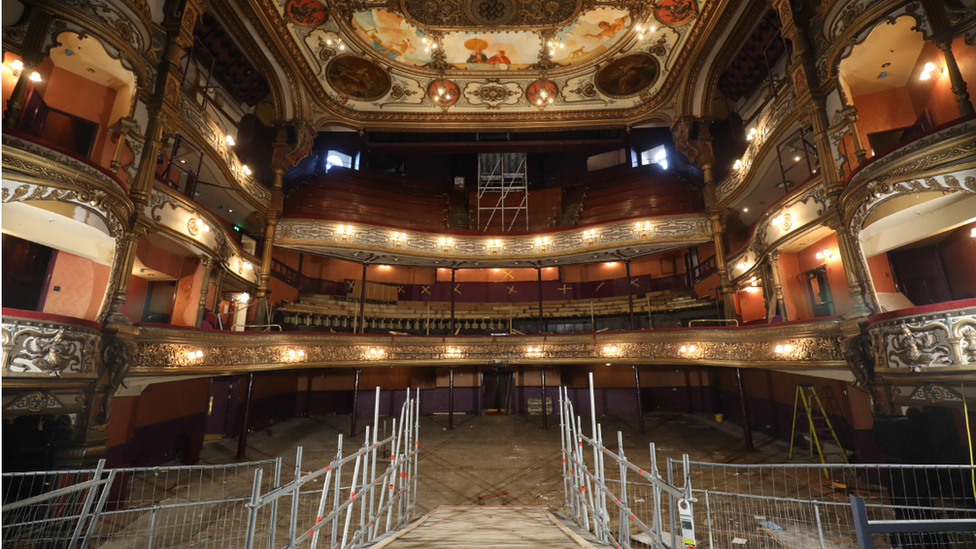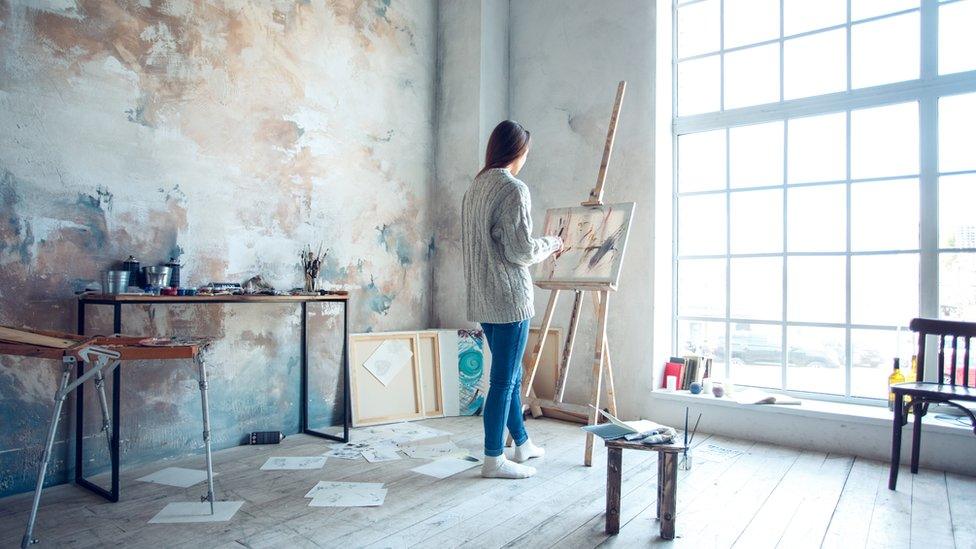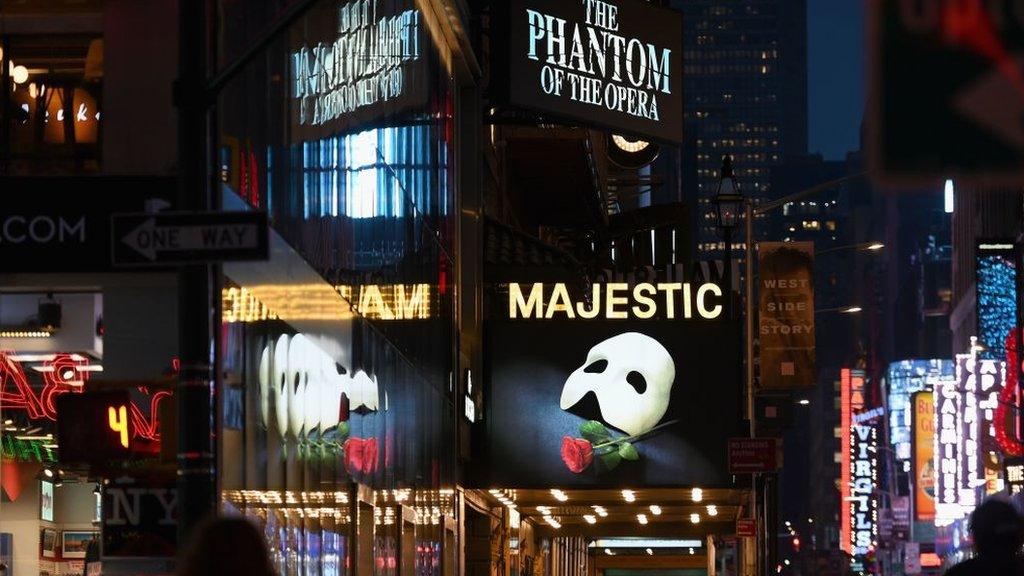Coronavirus: Lyric Theatre capacity 'may be 10%' post-lockdown
- Published

The Lyric Theatre is one of Northern Ireland's best-known venues
Belfast's Lyric Theatre may only be able to hold 10% of its usual occupancy if it reopens for audiences, a Stormont committee has heard.
Theatres and venues across the UK had to shut in March when the lockdown took effect.
It is thought most will have to remain closed until 2021, with some possibly reopening with social distancing.
The Lyric, which has been running for more than 50 years, has a capacity of almost 400 seats.
Damian Smyth, from the NI Arts Council, told the Department for Communities (DfC) committee that many venues and organisations are in a similar position.
'Complicated problem'
It is estimated there could be more than £4m in losses across the sector by the end of the year, assembly members were told.
Addressing the difficulties facing the Lyric Theatre, Mr Smyth said "at best" it would only be able to cater for 10% of its usual occupancy across all its shows, if it reopened next year.
"You're talking about a reduction in trading income and reduced footfall to the theatre's bar and cafe."
About 75% of the Lyric's staff have been placed on the furlough scheme, but from July some of them would be phased back onto the theatre's payroll, he added.

The Grand Opera House had already closed for renovation work - but more than 80% of its income is from ticket sales
"That will add other pressures onto the budget they have, that will bring its own risks."
The committee was also told that the challenges facing the arts sector extend from the largest organisations - such as the Lyric, Grand Opera House and Ulster Orchestra - right down to regional theatres, playhouses and groups putting on performances in schools.
"You are looking at a very complicated logistical problem that has to be solved before we can reopen," he said.
"Shows designed and cast elsewhere will also find it difficult to get into Northern Ireland, before you even start to think about the necessary changes backstage at venues as well as in the auditorium for the public."
The chief executive of the NI Arts Council, Roisín McDonagh, warned that many organisations in the sector are "scrambling for survival".
'The great unknown'
Some groups have been able to carry out their work on digital platforms, but she stressed many artists could not do so.
Ms McDonagh admitted she does not know what the arts sector will look like in 12 months' time.
"But, what we do know, is that programming as we know it in our venues, once reopened, will not look like it did before," she said.
"It will take at least a year to 18 months for some organisations presenting work to get back into theatres with an audience.
"The great unknown is, how will audiences react to being in an enclosed space, in the absence of a vaccine to protect them?"
Assembly members were also told that emergency funding packages announced for the sector are welcome, but do not go far enough.
A £500,000 Artists Emergency Fund, opened by the Arts Council and Department for Communities on 27 April, closed soon after due to a high level of demand.
The department has allocated £1.5m in total of emergency support for the sector so far.
"We know more will be required if the sector is to survive this crisis and to emerge, albeit perhaps in a different shape," said Ms McDonagh.
- Published13 May 2020

- Published4 May 2020

- Published20 December 2018
